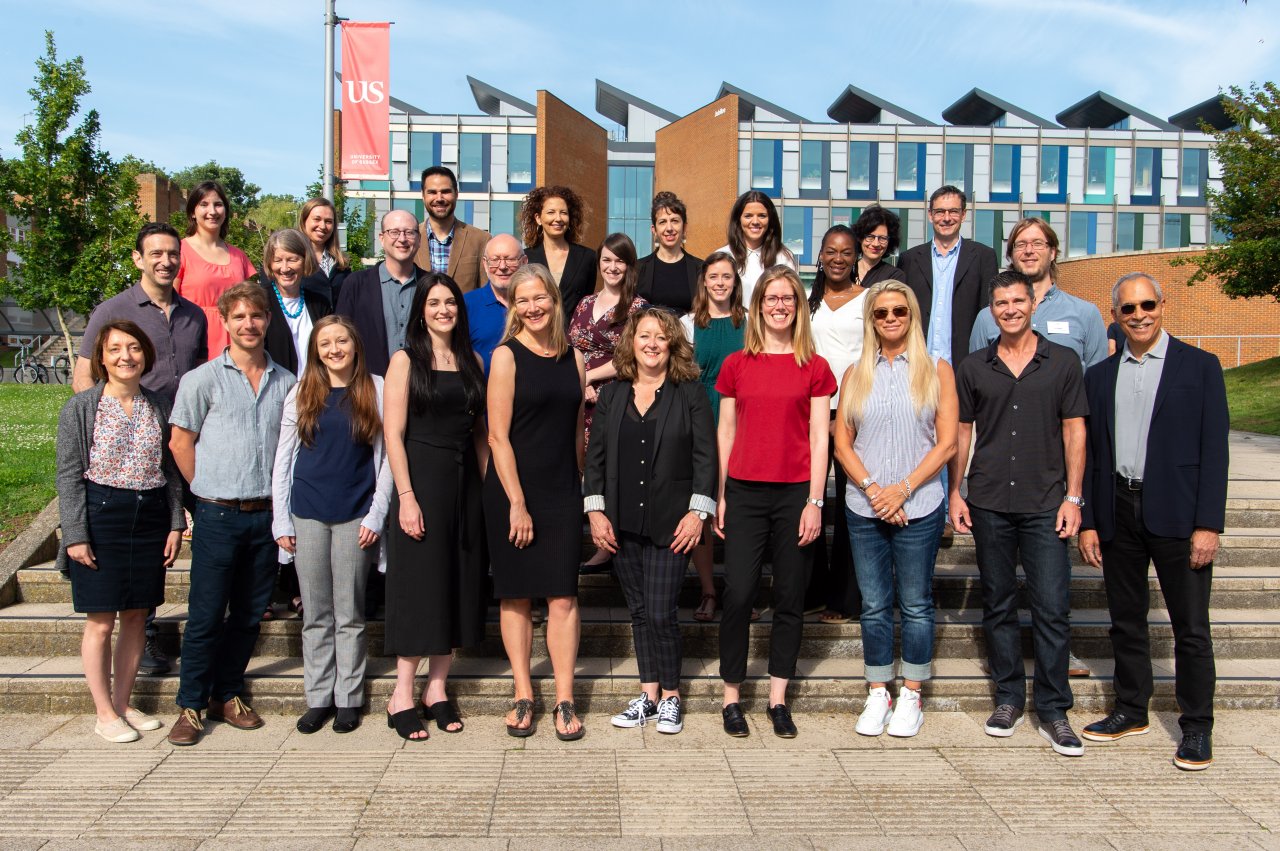Report on Joint EASP-SPSSI Meeting: Self-affirmation in Education
06.09.2019, by Tina Keil in meeting report
June 27-28th, 2019 at University of Sussex, UK; Organizers: Matt Easterbrook, David Sherman and Peter Harris

Twenty-five researchers (14 members of SPSSI and 12 members of EASP) from across the world came together at the University of Sussex in Brighton, UK at the end of June 2019 for a two-day meeting to discuss the use of self-affirmation interventions within education.
Self-affirmation is a brief psychological intervention that can substantially reduce educational inequalities between groups, with long-lasting effects. Yet, in recent years, a few studies have found the interventions to be ineffective, or effective only for some individuals and/or groups, or in certain contexts or at certain points in development. This highlights several important and pressing questions that need to be answered before self-affirmation interventions can be recommended to policy makers and educational practitioners: Under what conditions do self-affirmation interventions prove most effective? What characteristics of the individual, group, and context moderate their effectiveness? Which procedural aspects of the intervention are vital to its success, and which are more periphery? At what point in the education-system and/or individual development is self-affirmation most beneficial?
This meeting brought together leading and emerging researchers in self-affirmation in education to discuss these questions and explore variation in the effectiveness of self-affirmation interventions. The meeting, jointly funded by the European Association of Social Psychology and the Society for the Psychological Study of Social Issues, featured keynote addresses from the leading researchers from across the globe, including Claude Steele (Stanford), Geoff Cohen (Stanford), Valerie Purdie-Greenaway (Columbia), Geoffrey Borman (Wisconsin-Madison), and Judith Harackiewicz (Wisconsin-Madison). Contributions from such leading thinkers were complemented by contributions from early career researchers – including postgraduate students – and on communicating with policy makers, provided by the UK’s Behavioural Insights Team.
The series of talks were inspiring and provided powerful fuel for the discussions, which were an integral part of the meeting. The topics of the talks ranged from studies in which researchers had adapted self-affirmation interventions to new contexts or for new groups, studies exploring the mechanisms of self-affirmation interventions, and large-scale randomized control trials testing the scalability of the intervention. The meeting ended with a structured discussion and a final keynote address by the originator of self-affirmation, Claude Steele.
We also managed some time for a wonderful dinner and drinks, which all added to the warm and collegiate atmosphere.
The organisers of the meeting – Matt Easterbrook (University of Sussex), David Sherman (University of California, Santa Barbara), and Peter Harris (University of Sussex) – would like to take this opportunity to thank EASP and SPSSI for their support, and for all the attendees for their valuable contributions.
Related content: